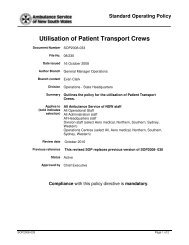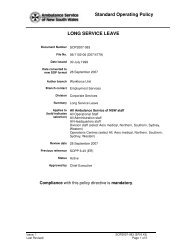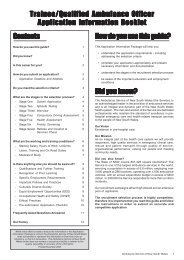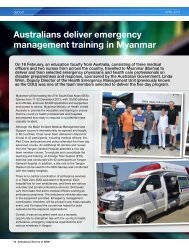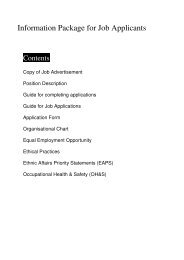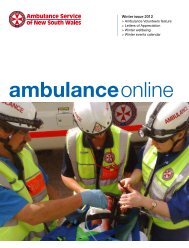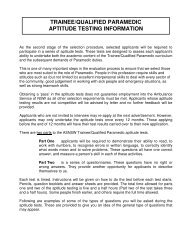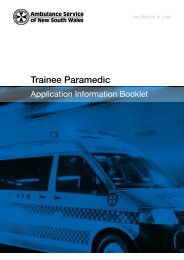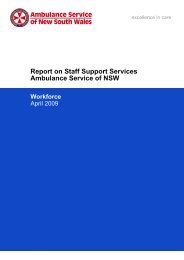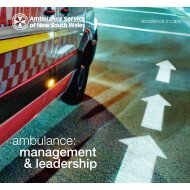Professional Conduct Guidelines - B. Misconduct, October 2006
Professional Conduct Guidelines - B. Misconduct, October 2006
Professional Conduct Guidelines - B. Misconduct, October 2006
Create successful ePaper yourself
Turn your PDF publications into a flip-book with our unique Google optimized e-Paper software.
6.2 <strong>Misconduct</strong> – employee resigns or retires prior to action being taken<br />
Disciplinary action arising from misconduct can still be taken even though the<br />
employee has retired or resigned prior to the action being taken.<br />
Whether to pursue action after an employee has resigned or retired depends<br />
on a number of factors such as:<br />
• the seriousness of the allegation or incident<br />
• the practicality of maintaining contact with the former employee and<br />
• the cost/ benefit to the Service of pursuing the matter.<br />
Taking disciplinary action does not affect the former employee’s retirement or<br />
resignation or the relevant benefits and liabilities.<br />
6.3 Protected Disclosure<br />
A protected disclosure is a disclosure made within the meaning of the<br />
Protected Disclosures Act 1994.<br />
The object of the Protected Disclosures Act 1994 is to encourage and<br />
facilitate a disclosure, made in the public interest, of corrupt conduct,<br />
maladministration and serious and substantial waste in the public sector. In<br />
this regard, s20 (1) of that Act makes it a criminal offence to take “detrimental”<br />
action against another person that is substantially in reprisal for the other<br />
person making a protected disclosure. An offence against s20 (1) of the<br />
Protected Disclosures Act 1994 constitutes misconduct and is specifically<br />
provided for at s45 of the Act.<br />
Detrimental action means action causing, comprising or involving any of the<br />
following:<br />
• Injury, damage or loss;<br />
• Intimidation or harassment;<br />
• Discrimination, disadvantage or adverse treatment in relation to<br />
employment;<br />
• Dismissal from, or prejudice in, employment; and<br />
• Disciplinary proceeding.<br />
It is important to understand that the onus of proof in relation to any<br />
proceedings for an offence against s20 requires the defendant to prove that<br />
detrimental action taken against a person was not substantially in reprisal for<br />
the person making a protected disclosure. This is a reversal of the usual<br />
standard, which requires the prosecution to prove the case.<br />
5



